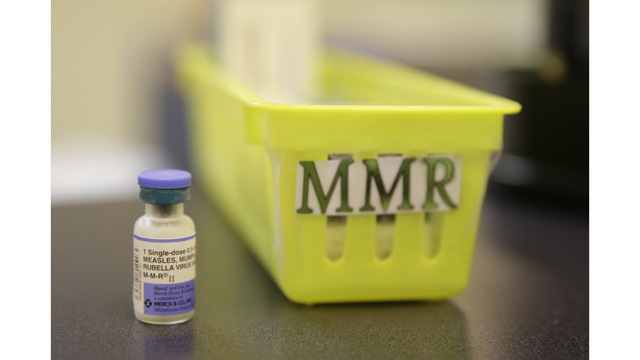Opinion: As measles outbreaks sweep the U.S., vaccines are more important than ever
Koin.com
March 11, 2019
According to the National Institute of Allergy and Infectious Diseases, since the development of vaccines, diseases that were once rampant and deadly in the United States, such as measles, smallpox, polio, and diphtheria have either been dramatically decreased in prevalence, or, in some cases, completely eradicated from the United States.
The country is backtracking from this progress, however, as measles, which was declared eliminated in 2000, makes a return to the United States. CNN reports that there have been at least 206 reported cases of the measles in eleven states across the country. The U.S. government has referred to the outbreak of measles as “a growing public health threat.”
In an age where we have not only the ability to protect ourselves and others from diseases such as the measles, but the history to prove that the disease can be eliminated as a threat to public health, the return of measles outbreaks is, frankly, reprehensible.
The decision to receive a vaccine should be a relatively simple one. According to the Center for Disease Control, “[t]he United States currently has the safest vaccine supply in its history”. All vaccines are extensively tested before they are distributed, and serious side effects from vaccines are extremely rare. In the vast majority of cases, any side effects from vaccines, such as soreness at the injection site, are minor compared to the diseases they prevent against.
But the decision not to vaccinate is not only harmful to yourself or your children, but to the people around you. Some people are unable to receive vaccinations, due to a weak immune system or illness. In these cases, these people are protected by herd immunity. For example, if someone were unable to receive the measles vaccine, they were still safe from the disease because measles was eliminated from the United States. There was nobody to catch it from. Sadly, this is not necessarily the case anymore.
The controversy surrounding vaccines is personal to everyone. Diseases that were once extremely common don’t even cross our minds as threats anymore, due to vaccines. Diseases that were once deadly aren’t as severe anymore, due to vaccines.
Three years ago, despite my vaccinations, I contracted rubella, or whooping cough. It took a week for my doctors to diagnose me, during which time I attended school and work. Nobody else reported contracting the disease, and my case was extremely mild, due to my vaccination. Something that might have killed me a few decades ago was merely a few days out of school and an annoying cough.
What would have happened if I wasn’t vaccinated?
At a place like a college campus, where people live very close together and share facilities such as bathrooms, diseases are able to spread aggressively and quickly. Every year, we, as college students, are under threats of illnesses such as colds, the flu, lice, and every other contagious disease. We already have to worry about homework, extra curriculars, finances, working, and everything else in our lives. Why should measles, something completely preventable, be another thing we have to worry about?
The answer is simple: it shouldn’t.
Students at UWL or Western Technical College can get vaccines at the Student Health Center for a small fee, depending on the vaccination. Please, play your part in keeping all of the students at UWL safe and get the vaccinations you need.







